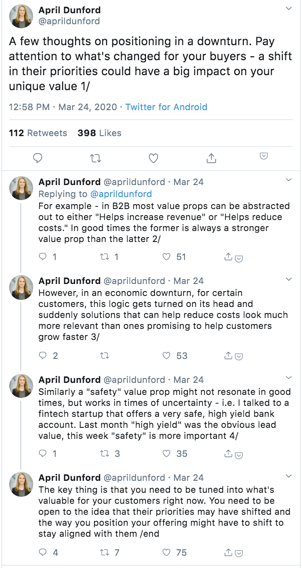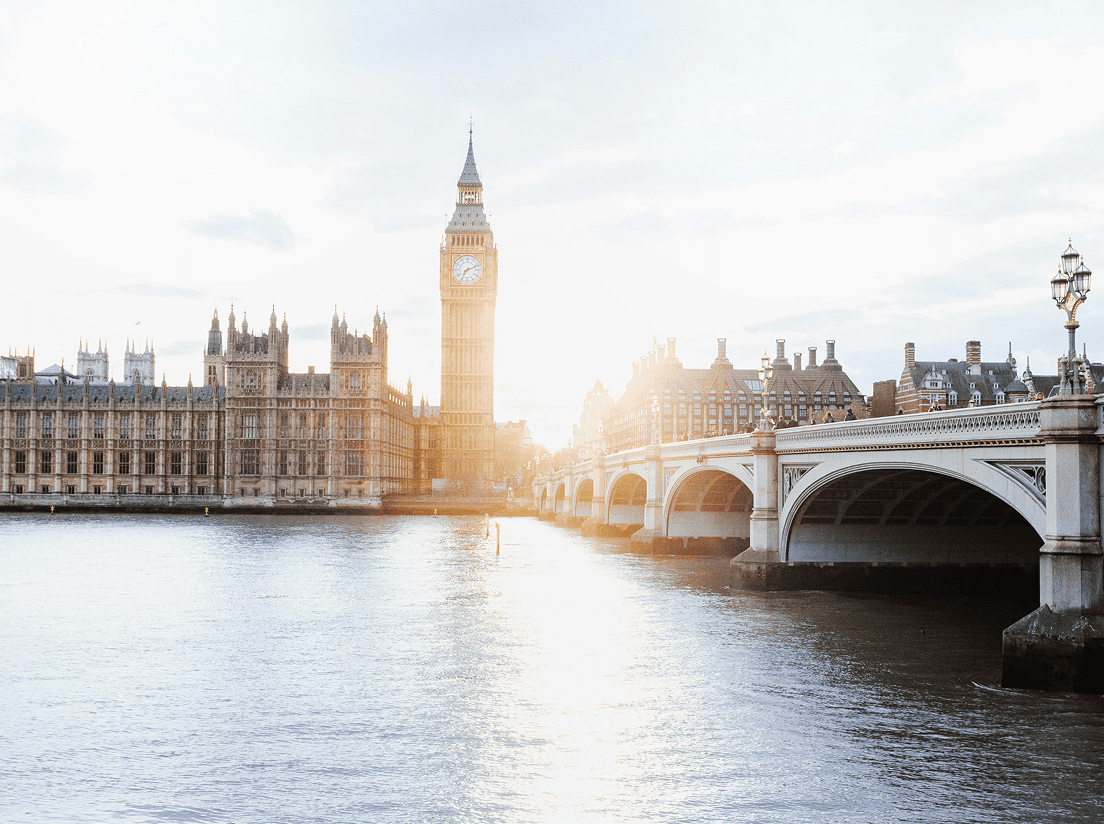
It’s no secret that travelers are buying fewer plane tickets and booking fewer rooms at hotels and resorts than in recent memory. Fear of spreading or contracting COVID-19 as well as state and federal stay-at-home orders have caused travelers to cancel or postpone vacations for the foreseeable future. But all is not lost. This week, we’re reading industry reports on the benefits of making short term marketing investments for long-term benefit.
Overview:
- Marketing is impacted, but brands should not go dark. Remain top of mind.
- Provide educating and valuable content to the consumer. Focus on people, not on revenue. Develop relationships with people.
- Take advantage of the areas and audiences where demand still exists.
- Don’t cut your rates. The reason people aren’t traveling isn’t that it’s too expensive, its because they can’t. You can’t solve a non-economic objection with an economic solution.
- The best marketing helps people first and earns their business as a secondary result.
- Rethink what is important to your guest.
hospitalitynet
“In the interim, your marketing efforts will undoubtedly adapt in accordance with this dynamic environment, but the last thing any brand should do is go dark. Don’t fall victim to “Out of Sight, Out of Mind”!”While your marketing strategy should always be based on educating and providing value to current and prospective clients, that sentiment becomes especially integral in times like these. While an immediate, measurable ROI or influx of sales may be off the table at the moment, focus on the continued cultivation of relationships.”This isn’t opportunistic or self-serving, it’s simply the adoption of a long-term perspective. If a company chooses to go dark, fading quietly into the background as the news continues to pour in, the path to recovery down the road becomes somewhat convoluted, and far from guaranteed. Alternatively, those companies which remain top of mind tend to weather these types of events much more effectively.”Keep Reading“While it might be tempting to cut all costs, history taught us that smart digital marketing budget allocation can help you gain in the long run. Listed above are just some of the building blocks of effective crisis management. The key is to learn from the past, be creative in locating your business-driving opportunities, be flexible with your digital spend.”While there is little we can do in the way of stopping the cancellations, we’ve been heads down planning for the rebound, ” says Justyn of MGM Resorts International. “We’re watching closely what virologists are saying regarding the spread of the coronavirus so we can anticipate the point when sentiment shifts.””The hotel industry has gone through crises before – and recovered. After the SARS epidemic was officially defeated, Ctrip reported 82% increase in flights bookings in just one month. If history is to repeat itself, hoteliers in Asia might see a dramatic uptake in Chinese outbound travel when the ban is lifted. When making urgent decisions, remember that your hotel needs to be ready for this rebound period.’We need to remember that when the market bounces back, it will be more difficult to push the rate up especially when the discounting has been too high in the crisis period,’ says Sunish of Chroma Hospitality. ‘This is the time for hotels in Asia when each department needs to think of new initiatives to drive revenue and commit not only to surviving but also coming out winners.'”Keep Reading
Koddi
“In the coming weeks and months, it will behoove travel brands to take a calculated approach to their campaign changes in light of the coronavirus, keeping long-term impact in mind. Brands shouldn’t cut spend or drastically reduce budgets as a knee-jerk reaction to the outbreak, but rather, they should take advantage of the areas and audiences where demand still exists. Instead of pausing all hotels, or all hotels for a certain point of sale, we recommend looking at specific destinations to see if they are affected (e.g., Italy, Disney Resorts) and then pausing campaigns or reducing spend in those areas on a case-by-case basis as needed.”Many publishers have advanced targeting criteria that can be used to select booking windows or audience segments that are still seeing demand. For example, the drop in traffic for hotels searches for same day and next day bookings has been lower compared to the other booking window segments.”Keep Reading
Fuel Travel
“Right now we’re playing Poker not chess. Nobody knows what is going to happen and any decisions are based on assumptions that are based on assumptions. Nobody has the right answer right now.”Don’t cut your rates. The reason people aren’t traveling isn’t that it’s too expensive, its because they can’t. You can’t solve a non-economic objection with an economic solution.”Change your marketing strategy, not your marketing budget. There are areas you can save money where people aren’t searching, but specifically, brand if we can still prove an ROI, it shouldn’t be turned off. You know OTAs aren’t turning off and if we know OTAs are going to take $1 out of every $5 and we can prove a better ROAS than that. We should still be running.Paid and earned/owned efforts are the only thing driving demand to your hotel.”Keep Reading
Skift
“A tweet from the group included language around daydreaming for your next trip, rather than planning one today.”Timing one’s marketing to coincide with recovery will also massively depend on the destination and its source markets. Rebas of Estonia told Skift “as most tourism boards probably do, we will focus highly on domestic tourism in near future. Then step by step, we will prepare co-campaigns with the industry so we’d be ready to go live as soon as it’s safe to do so. We will definitely test different inspirational online content in our closer markets and see the response on these.”Keep Reading

Credit: April Dunford via Twitter
SparkToro
- “The best marketing helps people first and earns their business as a result.
- “Help navigate uncertain waters.
- “Update your homepage with important information (answer the client’s questions before they have to ask) The article gave an example of Kettle One Broth website.
- “When people adjust to this new norm and start thinking past basic needs, they’re ready to start exploring the non-essentials. That is the time to rethink what is important to your guest.
Did you enjoy the read?
Get original hospitality industry insights delivered to your inbox. Sign up to receive Screen Pilot’s #TrendingNow Newsletter.






